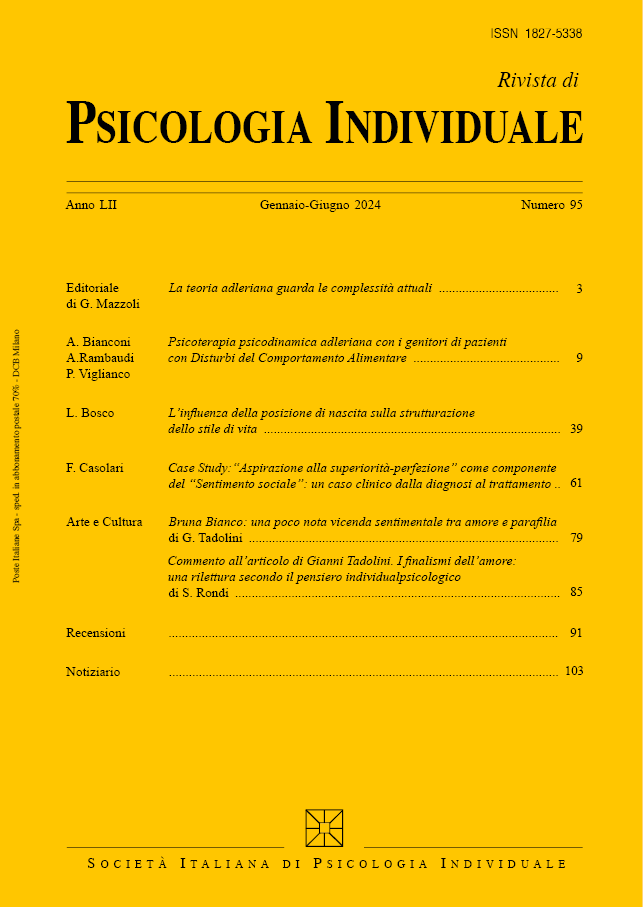Anxiety as an educational limit. Psychotherapeutic implications
Keywords:
pragmatic and utilitarian knowledge, repressed desires, empathy, pretences, interpretation, laws and demands of society, neurosis, re-educational psychotherapy, security, open transference, collateral transferenceAbstract
Assuming that anxiety does not correspond solely to a repressed desire (early Freud), but rather concerns the consequences of the relationship between desire and communication with the environment, it reveals the limits of the laws on which we base our security, when education, a fundamental moment for learning about laws and training oneself to obey them, has been insufficient. Consequently, neurosis corresponds to moments of crisis in the processes of adaptation to the environment, before new pacts with society are concluded. The psychotherapist must therefore take on this re-educational problem, proposing new and more useful norms to replace the old ones, while at the same time reconstructing, within the analytical relationship, an interpersonal climate that makes them readily acceptable, given that the old norms had previously been accepted with the glue of empathy with parents and significant childhood figures. This ‘open transference’ thus becomes the priority of therapy, even with regard to interpretation, and, unlike collateral transference, it must not be analyzed before the defenses have been dismantled by the patient. Once pragmatic knowledge of the laws has led the patient to realize that the old rules were only fictions, he can finally adapt to the new and more useful rules






